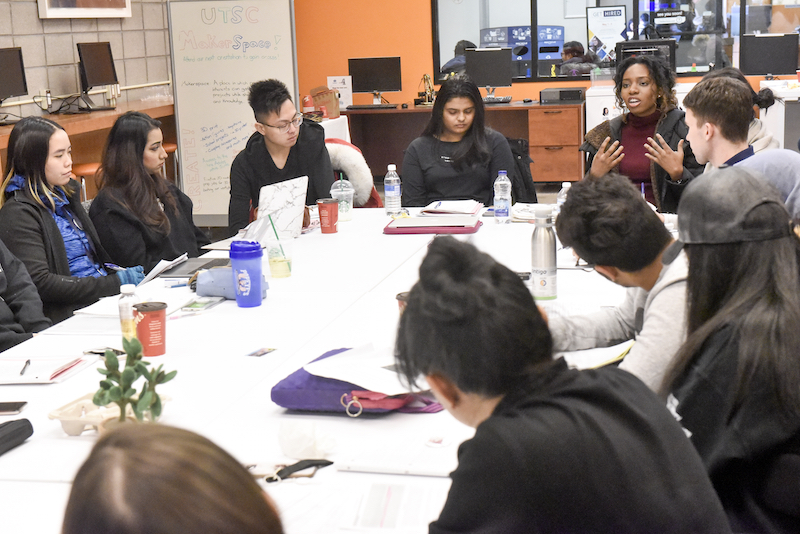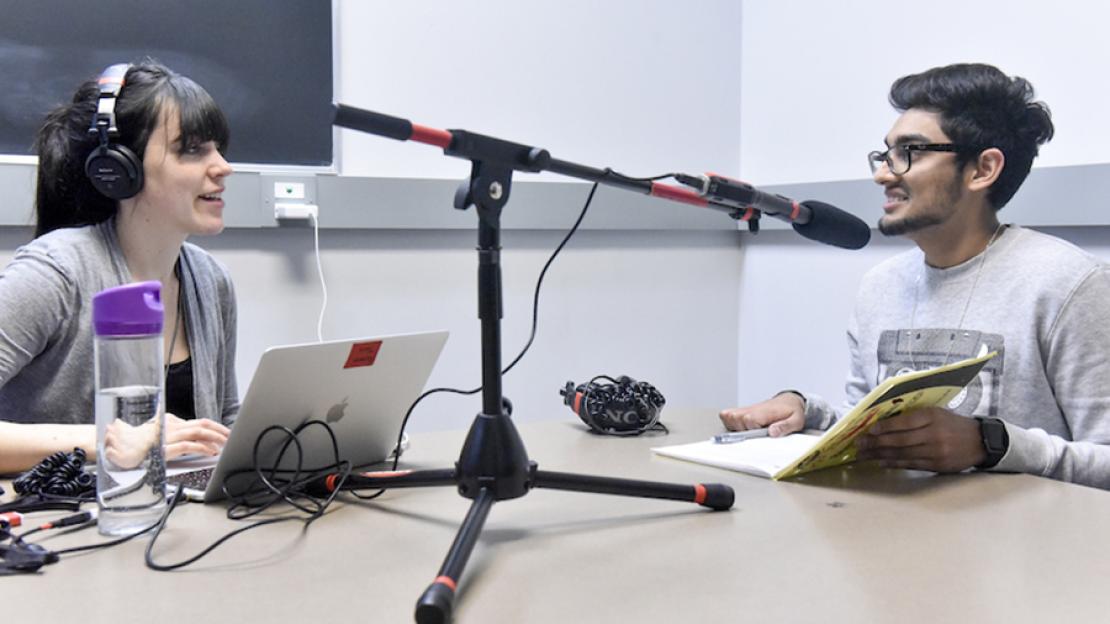A first-of-its-kind course in Canada is getting students to use digital media to share the stories of vulnerable groups in Scarborough.
The Special Topics in Health Humanities (HLTD50) seminar chronicles stories of adversity faced by citizens of Scarborough, with particular interest given to instances of medical mistreatment of marginalized groups.
Assistant Professor Andrea Charise designed the curriculum around the use of unconventional media telling unexpected stories. Students in the course – which just wrapped its first full semester – were encouraged to look at specific cases of discrimination or abuse faced by Scarborough residents, retelling their stories digitally through blog posts or podcasts.
“By combining the communication of health experiences with accessible practices of digital creation, the course can work as a way of giving a voice to a vulnerable, often underrepresented, population,” Charise says.
Because of the strong emphasis on amplifying the voices of the underprivileged in the course, Charise understood that many of the students and guest speakers would be uncomfortable with having their stories documented online – especially those who spoke of their traumatic accounts first-hand. For this reason, many of the blog and podcast submissions appear under pseudonyms, to protect the students from online harassment while allowing them to speak honestly about their experiences.
SickSocietiesFromThe6 is one such student who wrote about struggling personally with major depressive disorder, and spoke to the disparity in the amount of mental health literature published by those living without illness compared to those who do. The importance of courses like HLTD50 was also stressed across the blog, as teaching patients how to best communicate their experiences to an audience will always make it easier to understand and treat said illnesses.

Another student, Emily Chan, submitted her course work through a series of weekly podcast episodes. In addition to highlighting the experiences of Scarborough residents pertaining to healthcare, Chan also detailed stories of strife faced by minorities in general.
Author Catherine Hernandez was a guest speaker during one of the class’s seminars. Her book Scarborough offers a fictitious yet realistic look into the lives of the east GTA’s disenfranchised and impoverished peoples. Chan tied together the content of her own podcast with that of Hernandez’s book by featuring the author on her podcast.
“It was my first time meeting an author of a book I had read and the experience was great. Not only did she provide us with insight into her creative writing process but she also gave us a short reading of one of the chapters,” Chan says.
Chan credits her professor for taking the initiative to show a generation of students “that academic work and learning can come through many forms and [media].”
Charise in turned acknowledge the Office of the Vice-Principal Academic & Dean for their role in creating the Experiential Learning grant which was awarded to her in order to fund the HLTD50 course.
“I’m glad that the Interdisciplinary Centre for Health & Society, as well as the Office of the Vice-Principal Academic & Dean at UTSC, is so supportive of experiential learning that nurtures the creative skills based in the arts and humanities. The fact that these creative skills can be brought to bear on our student’s preparation for careers in the health professions is a real bonus,” she says.
“That’s why this work matters, and why initiatives like digital storytelling are so important to integrate into the student experience at UTSC.”
